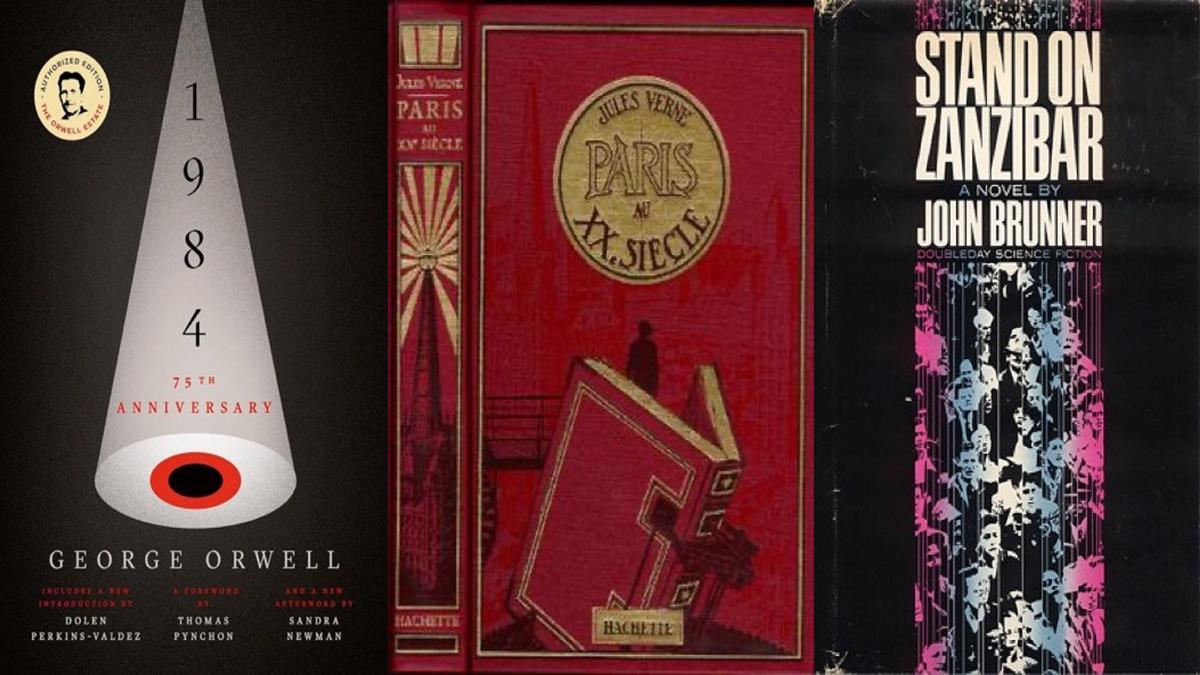
Science Fiction? More like Science Fact. Since its inception, the sci-fi genre has made eerily accurate predictions about the current state of the world. Virtual reality. Surveillance states. The rise of A.I. Some of these novels even predicted the internet before it was a spark in a circuit breaker’s eye! Does the internet even use circuit breakers? These science fiction authors would know, they’ve been right about literally everything else. Here are 10 sci-fi books that predicted the future. Perhaps not perfectly, but close enough. When it comes to horseshoes, hand grenades, and speculative fiction, close enough is as good as you’re gonna get.
The Machine Stops
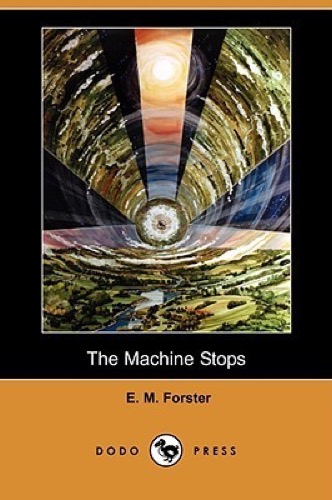
Written at the turn of the 20th century, E.M. Forster’s The Machine Stops accurately predicted one of the most life-changing technologies of the past millennia: the internet. In this novel, humanity has ditched Earth’s surface to live underground, and ditched each other in the process. Everyone lives alone in a subterranean cubicle, connected to one another through digital screens controlled by a god-like invention know as The Machine. Their basic needs met by The Machine, humans are free to trade useless bits of information with each other through the proto-internet, essentially making DM-sliding a full time job. Not only did this novel predict a version of the World Wide Web a hundred years before its invention, but also the social isolation that the internet causes. Don’t be the person E.M. Forster predicted you’d be, go touch some grass once in a while.
Neuromancer
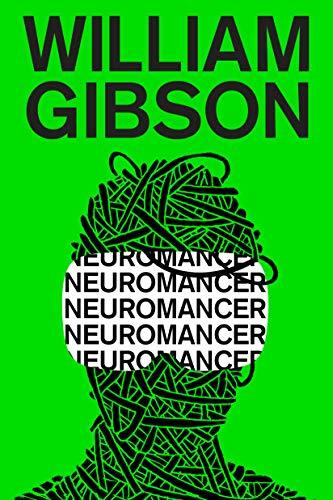
While E.M. Forster might have imagined a proto-internet, William Gibson’s Neuromancer supplied the finer details. In a hi-tech, low life cyberpunk world, washed up hacker Case is hired to pull off a digital heist in The Matrix. Yes, Neuromancer is the first novel to popularize the title of the infamous late 90’s cinematic masterpiece – and the concept it hinges upon. Gibson dreamed up a world where virtual reality was a part of everyday life, utilized by corporations, governments, AI, and people like you and me. With the rise of digital spaces and VR technology, Gibson’s predictions for the future are slowly taking shape in the present. Like E.M. Forster, Gibson accurately predicted the social ramifications of technological reliance. Everyone in his world is born alone, jacks in alone, and dies alone. In Night City, loneliness is your only companion.
Infomocracy
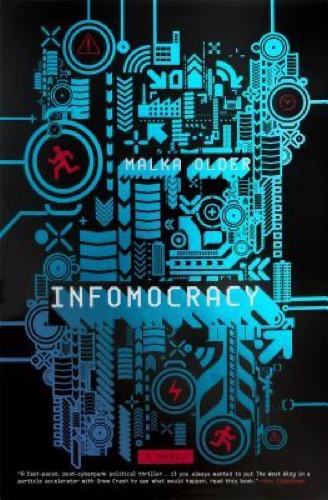
Written in 2016, Malka Older’s Infomocracy accurately predicted the rise of algorithmic politics. While the internet’s ability to create digital echo chambers and foster extremism was already an observable phenomenon in the 2010’s, Older’s novel accurately guessed that politicians would further exploit these unfortunate aspects of our interconnectedness in order to influence future elections. In Older’s world, a super-powered search engine transformed the global politics into global micro-democracy, where small voting blocks of people come to consensus to decide world affairs. The votes are tallied by the “impartial” search engine, and policy decisions are made. The story follows three political agents from different sides of the isle, all competing to bring about their brightest version of the future. Despite humanity’s best efforts, the system is far from perfect, and fake news is able to spread like wildfire. Hyper-targeted political advertising worsening the increasingly large cultural divide? Yep, this novel saw it coming.
The Parable Duology

Octavia Butler’s The Parable of The Sower and The Parable of The Talents got a lot right. A world ravaged by climate change? Check. Growing wealth inequality? Check. A hyper-nationalist religious movement coming to the political fore? Check, check, check. After her home burned down in a wildfire, the teenage Lauren Oya Olamina is forced to flee from her gated community and live a life on the road. In order to cope with uncertainty, Lauren creates a religion called “Earthseed” whose central tenant is “God is change.” A growing religious nationalist movement disagrees, and The Parable of The Talents actually describes a reactionary political leader obsessed with “making America great again.” Ronald Reagan used the phrase back in the 80’s, and Butler accurately predicted the idea’s unfortunate resurgence.
Paris In The 20th Century

Something prophetic was in the water in the 19th century, or maybe just in whatever well Jules Verne was drinking from. Written in 1863, Verne’s Paris In The 20th Century is a downright eerie prediction of the modern era. Verne predicted a hyper-industrialized world where corporations rule while the arts wither. Society worships commerce, and has reshaped itself in order to better facilitate the biggest ideas of big business. Skyscrapers, gas-powered cars, subway systems, fax machines, a network of electronic calculators that make up a proto-internet – it’s all there. This wouldn’t be the first time Verne predicted the future, he was writing about an American mission to the moon more than 100 years before Neil Armstrong stuck a flag in it. Freaky. However, this sci-fi prophet’s predictions weren’t always right. While we have made it 20,000 leagues under the sea, we’ve never made the journey to the center of the Earth as one of his novels suggested we might.
Stand On Zanzibar
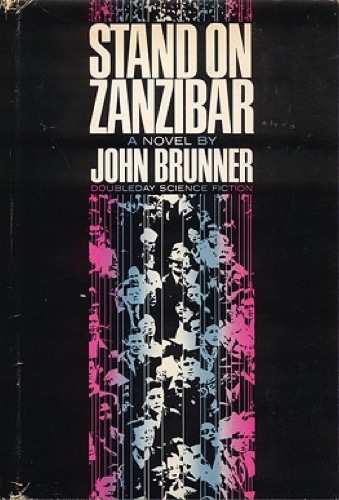
Written in 1968, John Brunner’s Stand On Zanzibar provides a scarily accurate prediction of one the 21st century’s most devastating social phenomenons: the mass shooting. Taking place in 2010, Brunner’s novel guessed that a combination of overpopulation, wealth inequality, and media saturation would cause widespread social destabilization – leading to an epidemic of violence. In Brunner’s world, radicalized members of society called “muckers” carry out lone-wolf acts of terrorism as a reaction to the worsening state of affairs. Despite many of his grim predictions, Brunner’s world wasn’t all doom and gloom. He foresaw the social acceptance of gay marriage, the de-criminalization of marijuana, and even the rise of social progressivism – all silver linings of a cloudy future.
Trouble And Her Friends
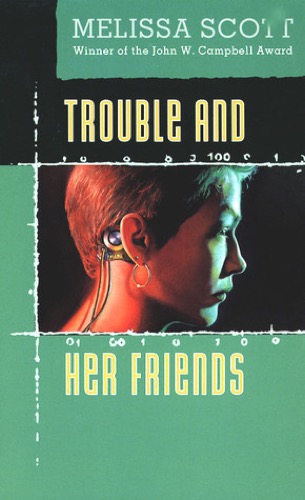
While Melissa Scott’s Trouble And Her Friends wasn’t the first novel to imagine the in’s and out’s of the World Wide Web, she made a prescient prediction related to its use by marginalized communities. The novel is about India Carless, who was once known across the virtual world as the infamous hacker “Trouble.” After the India discovers that someone is impersonating her online, the ex-hacker comes out of retirement to track her doppelgänger down. Aside from accurate predictions about cybercrime, identity theft, and internet anonymity, Melissa Scott also correctly guessed that the queer community would find belonging and connection in virtual worlds. The internet has become a (semi) safe haven to express identity, an unexpected positive of technology.
Snow Crash
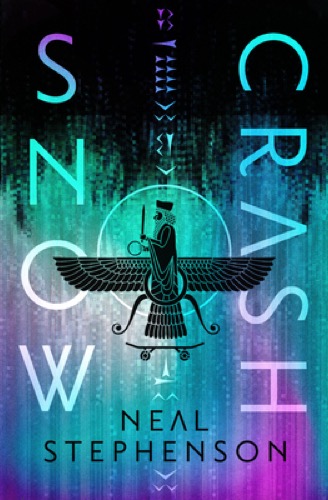
Written in 1992, Neal Stephenson’s Snow Crash was the first ever novel to use the term “metaverse” – for better or for worse. While Stephenson couldn’t possibly have predicted Mark Zuckerberg’s obsession with the concept, he did foresee a corporate controlled virtual world dominated by digital avatars and cryptocurrency. While not working as a pizza delivery guy for the mob, a hacker named Hiro Protagonist (yes, that’s really his name) dives into this virtual world in order to hunt down the source of a dangerous digital drug called “Snow Crash” – which is somehow connected with an ancient Sumerian script. While Silicon Valley might view this novel as the stuff of their wildest dreams, many readers are sure to see it as a worst nightmare.
Blackfish City
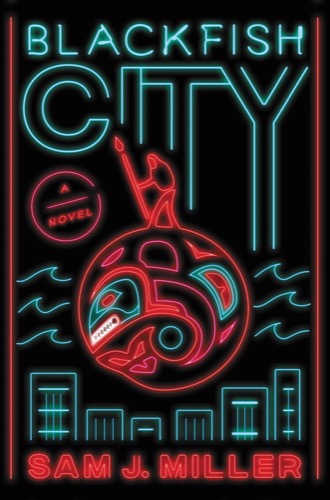
Sam J. Miller’s Blackfish City is whacky on paper, but then again, so is the modern world. After climate change causes widespread global flooding, climate refugees take shelter on a floating city in the Arctic Circle. Sadly, not even this city is safe from rising tide of wealth inequality, and corruption soon settles upon the watery world. Out of the ocean blue, a messiah appears – a woman riding an Orca whale who intends to set the city free from its social chains. An ultimately optimistic story of tomorrow, Blackfish City accurately predicts worsening climate change, biotech implants, and even the idea of the floating city itself. Google “Oceanix” – the buoyant metropolis is about to be a thing.
1984

Depressing as it is, George Orwell’s 1984 deserves a slot on this list. Orwell’s novel accurately predicted the surveillance state, giving rise to the term “Orwellian” to describe this flavor of social tyranny. The nation of Oceania is a brutally autocratic regime which keeps its citizens under constant watch, using a mass surveillance system that relies on facial recognition technology. Among the myriad transgressions a person can be arrested for, citizens can be punished for “facecrime,” or making a facial expression that suggests dissatisfaction with the system. Considering that governments and corporations already collect our data to monitor our every move, and are beginning to rely on facial recognition technology to track us even better, it’s fair to say that Orwell’s novel got things painfully right. Orwell also imagined a world where fake news would be weaponized in order to facilitate social control, and that politicians would promote falsehoods to subjugate the populace. Considering that a certain U.S. president refused to admit his election loss by claiming it was “stolen” from him, I’d say that government sanctioned lies are already alive and well.
Have a tip we should know? [email protected]







